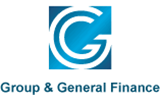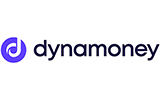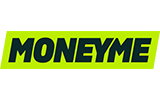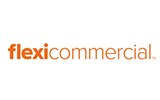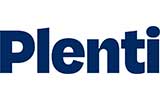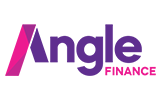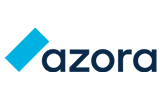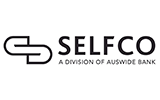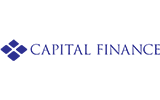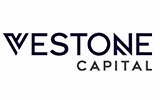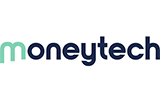BUSINESS FINANCE
Who qualifies for the best equipment finance rates?
1. The type of equipment you’re financing
Interest rates are generally lower if you’re financing ‘primary’ equipment with high resale demand, like forklifts, earth-moving equipment and trucks. ‘Tertiary’ equipment with limited resale demand (e.g. cool rooms, spray booths) tends to fetch higher rates. Lenders may charge a 2-6% p.a. loading on this type of equipment.
2. Whether it’s new or used equipment
Equipment finance rates are generally lower if you buy new business equipment or showroom models. Lenders usually offer financing for assets like yellow goods, construction, and farming equipment that are up to 20 years old. For vehicles and general commercial equipment, the age limit is usually 12-15 years old.
3. Your business revenue & trading history
Established businesses with a higher annual turnover and a long trading history are typically considered less risky, and will generally benefit from lower interest rates when financing equipment. Businesses with an annual turnover of less than $1 million will typically pay a higher interest rate than businesses with a revenue over $5 million, for example.
4. Your business assets & debts
Lenders will typically evaluate your business revenue and expenditure, plus your balance sheet. They will look at your current debts (and other financial obligations) relative to your business assets and income. Generally speaking, having fewer debts relative to your business income can qualify you for a better interest rate and also means you could borrow a higher amount.
5. Your personal & business credit profile
Lenders check your business credit score and the credit rating of your company directors. They want to see a history of responsible credit management. Having a good credit score will qualify you for a lower rate and vice versa. Based on our analysis of various business lending criteria, lenders generally look for a minimum director credit score of 500-600 and a minimum company credit score of 475-500.
6. Whether it’s a dealer, auction or private sale
Interest rates are generally lower if you buy equipment via a licensed dealership, as you typically get a statutory warranty (a warranty that covers defects on goods) with the purchase. Lenders tend to charge higher rates for equipment purchased through a private sale or at auction. Some lenders may apply a 0.50-1% rate loading on those purchases. Additionally, some lenders will only allow certain types of equipment to be purchased privately or at auction (namely primary equipment).
7. Whether you’re a homeowner (asset backed)
Business borrowers who own a home or residential property in Australia generally qualify for lower interest rates compared to renters. Homeowners are ‘asset-backed borrowers’ who are considered less risky from a lender’s perspective. That’s because they may be able to borrow against their home equity to settle their outstanding debt.
Money.com.au's borrower data shows that around 58% of business people applying for equipment finance are asset-backed homeowners. They typically borrow significantly more than non-home owners: $235,782 on average versus $82,167. Most businesses that apply (59%) have been trading for 3+years.
What can equipment finance be used to pay for?
Primary equipment
- Agricultural machinery & equipment (e.g. tractors, harvesters)
- Construction equipment
- Earth-moving machinery
- Yellow goods (e.g. excavators, diggers)
- Rock crushers
- Light trucks (under 3.5 tonnes)
- Heavy trucks (over 3.5 tonnes)
- Trailers, buses & coaches
Secondary equipment
- Medical, dental & laboratory equipment
- Mining equipment
- Trade tools
- Plant services (e.g. compressors and generators)
- Printing & packaging equipment
- Forestry machinery & equipment
- Engineering & toolmaking equipment
- Woodworking & metalworking equipment
- Mechanical workshop equipment
- Food manufacturing equipment
Tertiary equipment
- Fitness equipment
- POS systems
- IT assets
- Renewable energy
- Pallet racking
- Fit-outs
- Air conditioning units
- Cool rooms
- Catering and hospitality equipment
- Coffee machines
- Portable buildings

Phil Collard, Money.com.au's Asset Finance Expert
"Recently we've seen high numbers of business clients borrow for assets and equipment in order to meet an increased demand for their services. This is a great position for business borrowers to be in as there is a clear return on investment which can be quantified, making the decision to take on a loan a fairly straightforward decision."
Phil Collard, Money.com.au's Asset Finance Expert
Equipment loan vs equipment lease compared
Type of equipment finance | Equipment loan/line |
|---|---|
Pros |
|
Cons |
|
Type of equipment finance | Finance lease |
Pros |
|
Cons |
|
Type of equipment finance | Operating lease |
Pros |
|
Cons |
|
| Type of equipment finance | Pros | Cons |
|---|---|---|
Equipment loan/line |
|
|
Finance lease |
|
|
Operating lease |
|
|
Who’s eligible for equipment finance?
Eligibility requirements for business loans to purchase equipment will vary between lenders, but generally include:
- Australian citizenship or permanent residency
- An active ABN or ACN
- At least six to 12 months of trading history
- Your business must be GST-registered
- A good credit score — the minimum business credit score is 475, and for company directors, it’s about 500 (it could be less if you’re a homeowner)
- You must be purchasing or leasing equipment that will be used for business at least 51% of the time
How to apply for equipment finance
Compare equipment finance rates & lenders
Consider comparing indicative rates, fees and features from different lenders. The best way to do that is via a finance broker, as they’ll be able do it on your behalf without impacting your credit. Keep in mind that your personalised rate will generally be different to the lender's advertised rate — it will be unique to your business credit profile. It may also be worth comparing customer reviews for different lenders to see how satisfied their customers are.
Prepare your documentation
Your lender will request some financial documents or a self-declaration to verify your business revenue. Generally, they will ask for six to 12 months of business bank statements, BAS statements and/or tax returns. The higher your loan amount, the more information you'll need to provide to the lender. If you’re borrowing more than $150,000, some lenders may require that your financials be prepared by an accountant.
The lender will check your credit score
Your lender may conduct a credit check through one of the credit bureaus in Australia. This will provide a summary of your credit history, including how you’ve handled previous debts, and whether you've had any late or missed payments, and defaults in the last few years. If the lender is satisfied with your credit report, you’ll progress to the final stage of the application process.
Get your equipment finance application approved
If you haven’t yet found the equipment you want to buy, the lender may grant you pre-approval. This means you’re approved ‘in principle’ to borrow a certain sum before you actually purchase the equipment. You’ll need to sign a contract to purchase and provide registration paperwork for the equipment before you can get unconditional approval.

